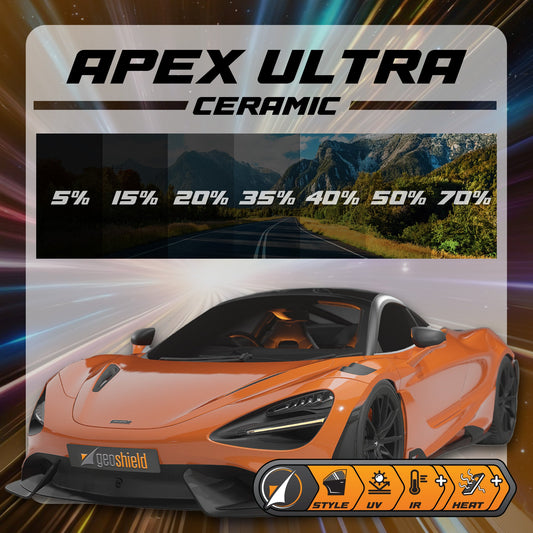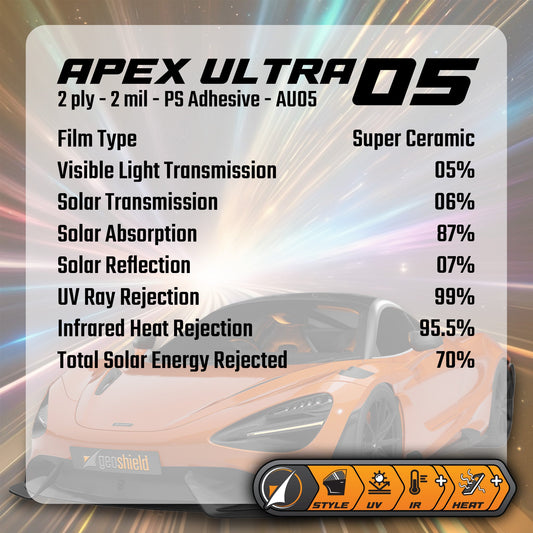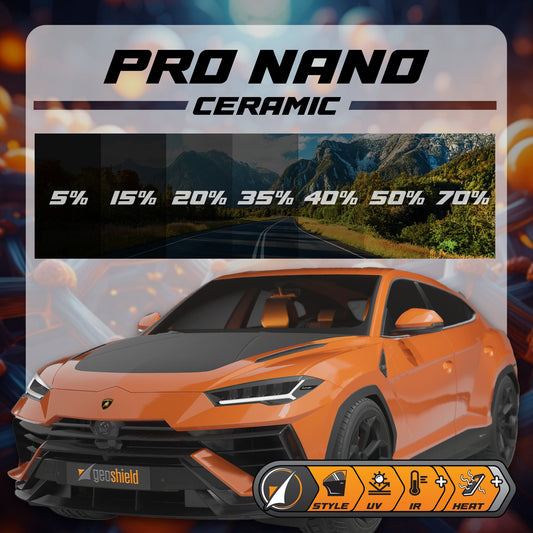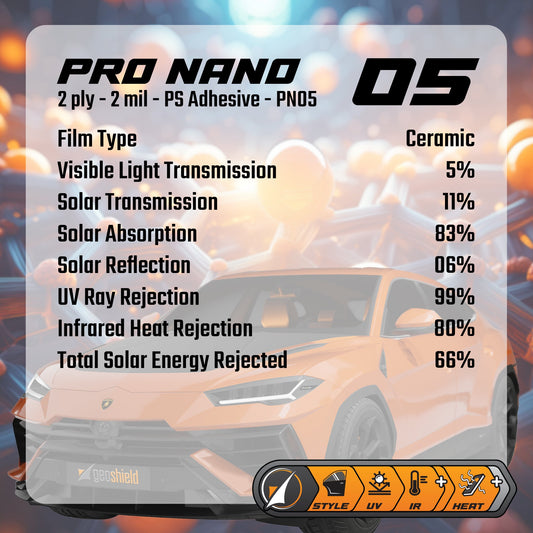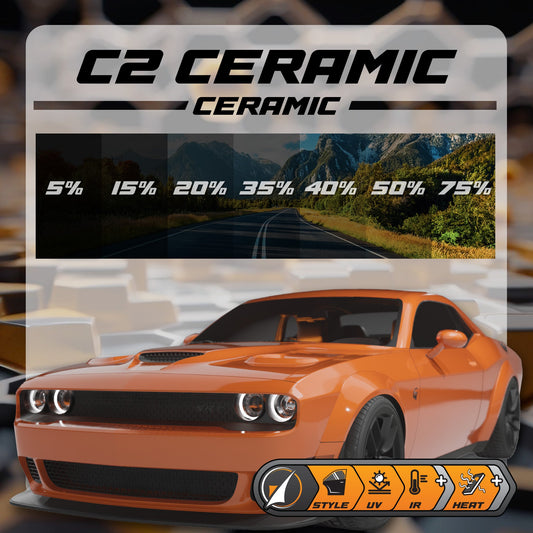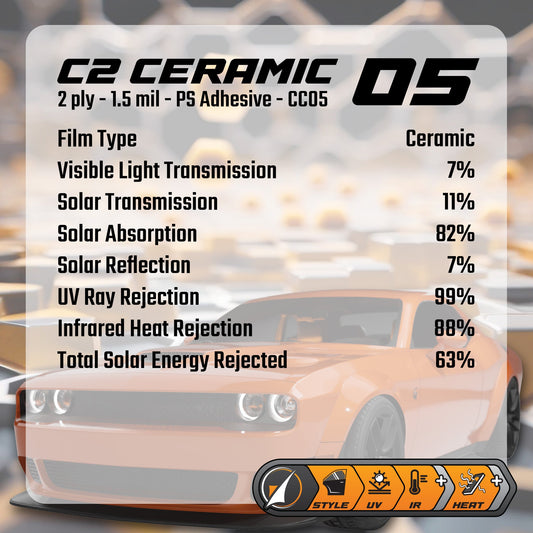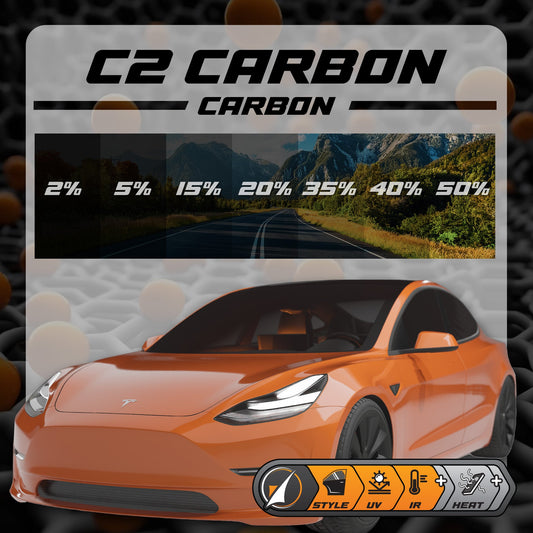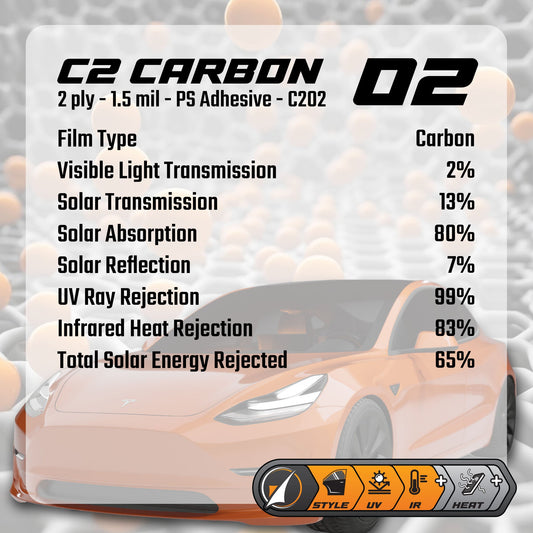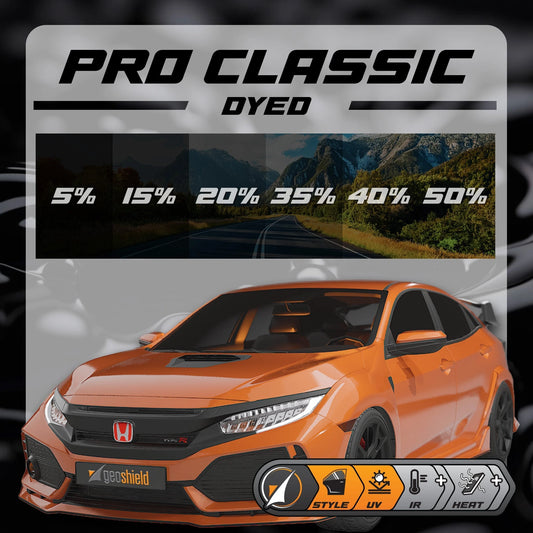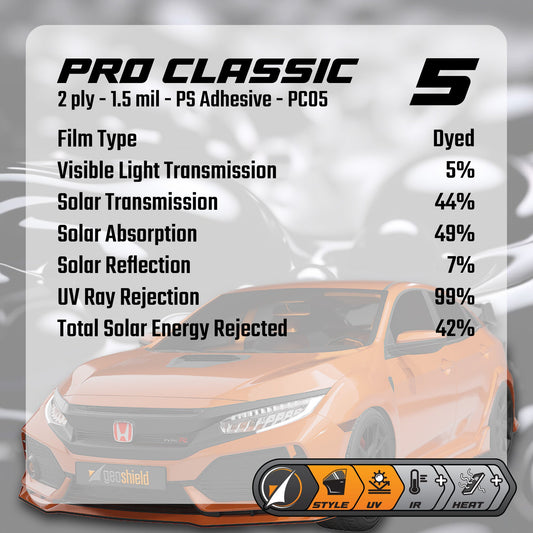Discover the pinnacle of automotive window tinting solutions with Geoshield. Whether you seek cutting-edge nano-ceramic innovation, high-performance carbon technology, or classic dyed options, Geoshield offers a film to fit your needs. Our superior films surpass competitors, ensuring your comfort and protection on every journey. Backed by a lifetime transferable warranty, Geoshield Window Film guarantees lasting satisfaction and peace of mind.
Supporting Collections
Auto Tint Comparison
A tinted vehicle feels better to drive — cooler temperatures, greater comfort, real UV protection, and a more refined look. Skip the tint and you’re stuck with heat, glare, and interiors that wear out long before they should.
Apex Ultra
Best For
Those who just want to look cool or are budget conscience
Intro to heat rejection with fade-proof style
Daily drivers seeking comfort and style
High-end performance for even the hottest environments
Luxury build, supercars, and extreme heat
Technology
Dyed
Carbon
Ceramic
Ceramic
Super Ceramic
Thickness
1.5 mil
1.5 mil
1.5 mil
2 mil
2 mil
VLTs Offered
5, 15, 20, 35, 40, 50%
2, 5, 15, 20, 35, 40, 50%
5, 15, 20, 35, 40, 50, 75%
5, 15, 20, 35, 40, 50, 70%
5, 15, 20, 35, 40, 50, 70%
Heat Insulation
Minimal
Moderate
High
High
High
TSER Range
30-42%
33-65%
35-63%
49-66%
49-70%
IR Rejection Range
N/A
34-83%
71-85%
76-83%
95% (all)
UV Rejection
99%+
99%+
99%+
99%+
99%+
Clarity
High
High
High
High
Extreme
Color
Deep Dyed Blacks
Neutral Carbon
Neutral Carbon
Deep Dyed Blacks
Cool Ceramic Neutral
Warranty
Lifetime
Lifetime
Lifetime
Lifetime
Lifetime
Unique Features
Budget Friendly, Fade-Free, Deep Dyed Film
Carbon pigmentation for budget heat rejection
Carbon pigmented ceramic film
Deep dyed ceramic film with major heat rejection
Dual ceramic tech for ultimate heat rejection and clarity
